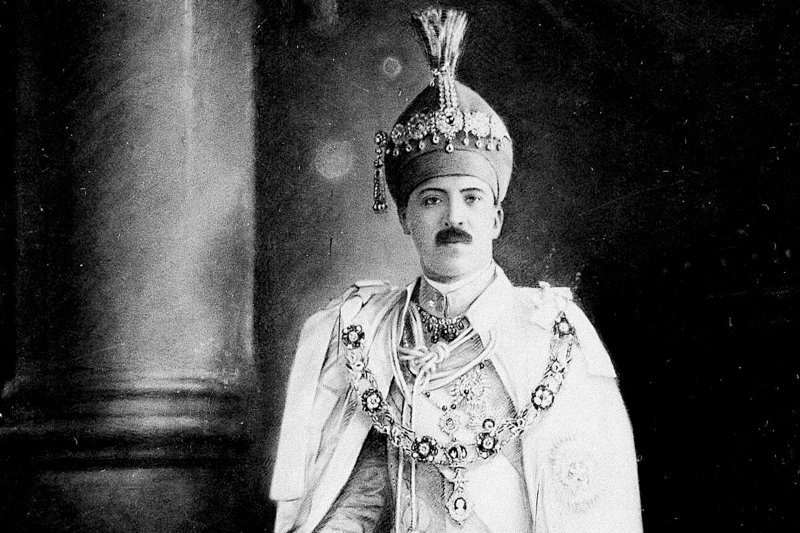Mountbatten meets Hyderabad delegation
Hyderabad was a large princely state whose ruler, the Nizam Osman Ali Khan, was strongly in favour of retaining his sovereignty despite the Indian National Congress’s desire to incorporate the princely states within the Union of India.

Osman Ali Khan
Source: Unknown author, Public domain, via Wikimedia Commons
Negotiations between British, Indian, and Hyderabadi representatives took place in July, however, an agreement was not reached due to fundamentally incompatible positions.
Reflecting on early negotiations with the Hyderabadi delegation, Viceroy Mountbatten wrote,
“ I tackled the most difficult problem of all, the accession, or as I put it the ‘adherence’, of Hyderabad to the Dominion of India. Up to now the States have all felt that the Dominion of India Government would insist on complete adherence for all the Central subjects, which would virtually mean giving up internal autonomy. But both Nehru and Patel have made the most realistic gesture in authorising me to negotiate on the basis of the three original Central subjects in the Cabinet Mission plan — Defence, External Affairs and Communications.
30. I was able to point out to the Hyderabad delegates what an immense step forward this was over the previous position; and I noted that they were visibly relieved. I pointed out that the standstill agreement which I proposed to negotiate with all the States on the 25th July virtually covered comunications ; thus adherence on this point was almost certainly assured. I pointed out further that they might as well equip their armies with bows and arrows as retain their existing arms for all the good they would be when the new post-war weapons and techniques were developed, and that anyhow they could hardly expect to run their own overall defence. I also pointed out that they could hardly expect to run External Affairs on an individual basis and that the two questions were inseparably linked.“
Source: ‘Viceroy’s Personal Report No. 12’, Nicholas Mansergh & Penderel Moon (eds.), Transfer of Power, vol. XII, p. 98-99
Share this Article
Our Funders

